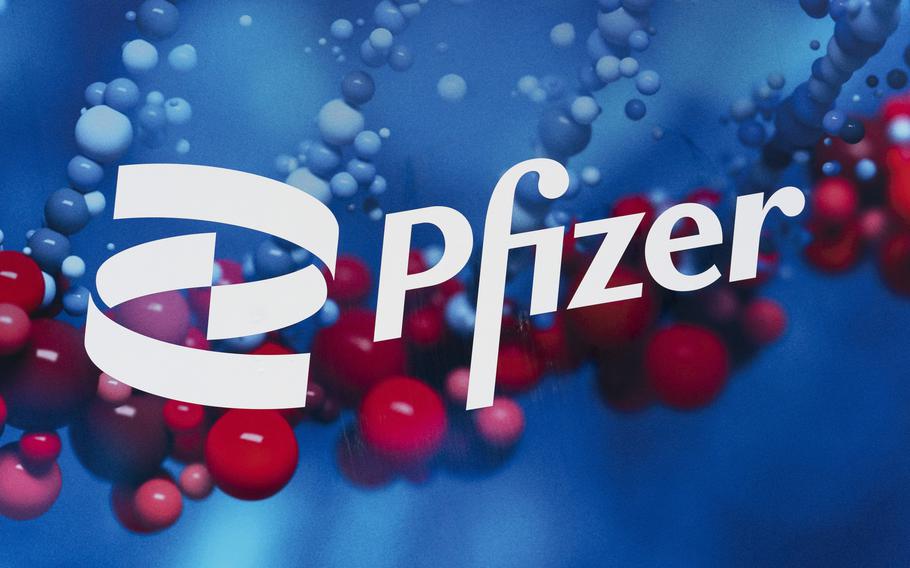Coronavirus
Biden administration to announce purchase of 10 million courses of Pfizer anti-COVID pill
The Washington Post November 16, 2021
WASHINGTON — The Biden administration is expected to announce this week it is purchasing 10 million courses of treatment of Pfizer's COVID pill, a multibillion dollar investment in a medication that officials hope will help change the trajectory of the pandemic by staving off many hospitalizations and deaths, according to two people with knowledge of the transaction.
U.S. officials see this antiviral pill, and another by Merck and Ridgeback Biotherapeutics, as potential game-changers to help restore a broader sense of normalcy and are eager to add them to a small arsenal of treatments for Americans who contract the virus. With breakthrough cases rising and 30% of American adults not fully vaccinated, health officials believe the pills will help tame the pandemic because of their ability to thwart the virus' most pernicious effects.
Pfizer announced earlier this month that its experimental pill, which will be sold under the brand name Paxlovid, reduced the risk of hospitalization and death by 89% in high-risk people when taken within three days of the onset of symptoms. The company said it planned shortly to file an application for emergency use authorization with federal regulators.
The pharmaceutical giant has already started manufacturing the pill, and if the Food and Drug Administration clears it, the therapy could be available right away — though in very limited quantities. Pfizer has said it may have enough treatments to cover between 100,000 to 200,000 people by the end of the year and millions more in the first half of next year.
The announcement comes as COVID cases are increasing in many parts of the United States, raising fears among public health officials that the nation could be in for a rough winter. The seven-day rolling average of daily new cases per 100,000 residents rose 18 percent for the week ending Nov. 15, according to The Washington Post's COVID-19 tracker.
The Pfizer pill, and the one by Merck and Ridgeback Biotherapeutics, which is already under FDA review, represent a new way to try to reduce the most severe outcomes from the virus, experts say.
The United States government already has committed to buy about 3.1 million courses of the Merck drug, molnupiravir, for approximately $2.2 billion, assuming the FDA authorizes the drug, the company has said. That comes out to about $700 for each course of treatment, analysts said. The government also has the option to buy another 2 million courses under the contract with Merck.
The price struck between the administration and Pfizer for its drug is less than for the Merck pill — closer to $500 per treatment, according to a federal official familiar with the situation. However, the final details are not done, officials said.
Originally, the administration planned to buy as many as 5 million courses of treatment from Pfizer. But when the company's data was released and looked so promising, Biden and his aides asked Pfizer to double the order.
The treatment, which is taken at home over five days, is made up of 30 pills. That includes 10 pills of an old HIV medication that extends the activity of the Pfizer drug for a longer period.
Health experts, while welcoming the pills, caution that vaccines are the most effective way to curb the pandemic, and state and federal officials are accelerating efforts to encourage all adults who are at least six months past their vaccinations to get booster shots.
The FDA is expected to grant a request from Pfizer and its partner BioNTech — perhaps as soon as this week — to authorize boosters for their vaccine for everyone 18 and older. New York City and several states, including Colorado and New Mexico, already have urged all adults to get boosters.
Merck announced in October that its COVID pill reduced the risk of hospitalization and death by nearly half among higher-risk people diagnosed with mild or moderate illness. The medication has already been authorized by British regulators for older people or those with at least one underlying medical condition.
Some scientists have raised questions about the safety of the Merck pill because it works by inserting errors into the virus' genetic code to prevent it from copying itself. The concerns center on whether that process could encourage mutations. Pfizer's pill uses a different mechanism.
An expert advisory committee to the FDA is scheduled to meet shortly after Thanksgiving to scrutinize the safety and effectiveness of the Merck drug.

This Feb. 5, 2021, file photo shows the Pfizer logo displayed at the company’s headquarters in New York. (Mark Lennihan/AP)